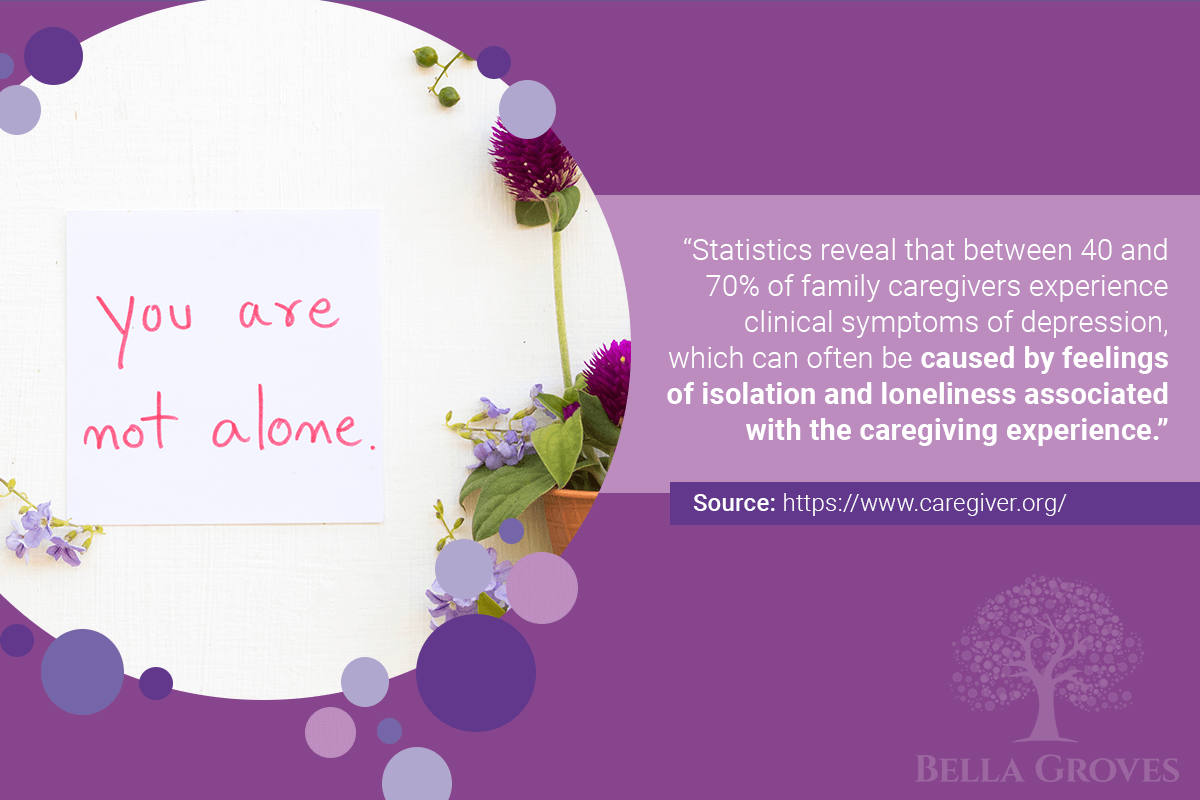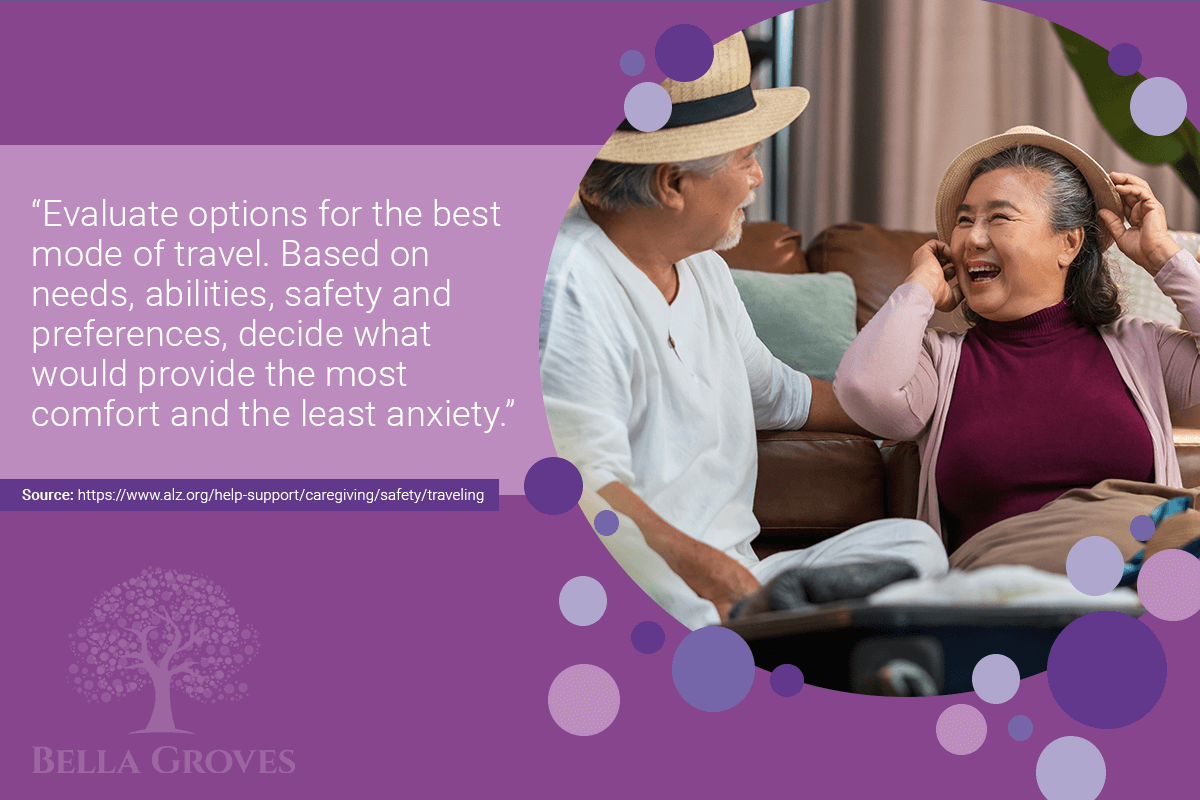
Dementia Support Groups: Why It’s Important to Find Caregiver Support
When a parent or family member is diagnosed with dementia, stepping up as a care partner is brave, selfless, and rewarding, but it doesn’t come without challenges. Caring for a loved one can be mentally and physically exhausting, and dementia care can also be an isolating experience.
During these moments, it’s important to remember that you are not alone. Just like your loved one needs to experience engagement and connection, so do you. Fortunately, dementia support groups provide community and solidarity for caregivers sharing similar challenges and experiences.
Become Part of an Understanding Community
Studies have shown that participating in a support group can positively impact a caregiver’s mental health. Caring for a person living with dementia requires a large amount of time, attention, and support; for care partners, this translates to a demanding schedule of appointments, assisting with daily tasks, ensuring safety, promoting engagement, and more. These are often on top of other responsibilities and duties, such as being a parent, spouse, employee, etc., which can lead a caregiver to experience burnout and stress.
Because of their unique situation, care partners might find it challenging to express emotions to friends or family members who may not fully understand their struggles. By joining a dementia support group, you’ll be able to connect with others who are dealing with the same questions and issues and experiencing the same emotions and mental challenges, allowing your feelings to be validated.
Support groups can also provide a safe space to share emotions or situations that are more distressing or difficult to deal with. The reality of dementia care is not always pretty, and these topics may be difficult to understand, leading friends or family members to misinterpret your feelings. “Know that some people may not understand your grief. Most people think grief happens when someone dies. They may not know that it’s possible to grieve deeply for someone who is still alive but experiencing profound changes due to the progressive nature of the disease (alz.org).”
Support groups offer a judgment-free zone for you to share painful feelings and situations and, in some cases, provide advice and coping mechanisms.
Personal Time to Socialize
Caring for a person on a full-time basis can create major changes to your personal life, and feelings of caregiver guilt can make you second guess any social plans you might want to make for fear of leaving your loved one or not being present should something happen.
Joining a dementia support group allows you to enjoy a social outlet and make new friends who understand the difficulties of taking time away from caregiving responsibilities. Meeting like-minded people and enjoying a social outlet with people going through similar situations can remind you that you aren’t alone. Your needs matter and there are others who are seeking the same peace of mind as you. It can be a comforting thought knowing there are opportunities in dementia support groups to find a foundation of strength, validation, and reassurance.
Learn Dementia Care Techniques and Strategies
Dementia support groups provide a safe space for caregivers to connect and form friendships with those who truly recognize what they’re going through, but they can also serve as a tool for resources and education.
Dementia progresses in stages, which means that others in your support group might have experienced the phase that you and your loved one are currently in. By discussing your journey with a group, you can gain the knowledge that others in your support group experienced first-hand through advice, stories, and shared resources.
Find Support for Your Dementia Journey
Bella Groves helps individuals and families from day one of their dementia journeys. Our service levels meet you where you are and provide the knowledge, tools, and support you need to find success and create unconditional joy.
Level 1: Learning Center
Our Level 1 service offers an interactive Learning Center to educate and connect individuals, families, and professionals impacted by dementia. In addition, members of Bella Groves’ Learning Center have access to know when and where in-person and online dementia support groups are being held along with social events. They can ask questions, post stories, and interact with other users freely.
Level 2: Dementia Navigator
Bella Groves’ Level 2 Dementia Navigator services offer a full range of dementia consulting expertise, resources, network reach, and know-how from our loving team. You don’t have to go through this journey alone. Bella Groves will provide compassionate expertise in understanding the progression of dementia, identifying, recognizing, and validating the feelings and emotions of the person living with dementia and the care partner.
Level 3: Residential Dementia Care
As dementia progresses, so will your loved one’s needs. Over time you may realize that a dementia care community is the best choice for your loved one to live a safe and meaningful lifestyle so that you can focus on being their spouse, daughter/son, grandchild, etc. Our Level 3 services feature our Bella Groves community, the kind of place we want our own family members to live in someday.
Dementia will progress; we’re here to progress with you. If you have questions about your dementia care journey, we invite you to call us at (830) 323-0440 or email us at hello@bellagroves.com.


